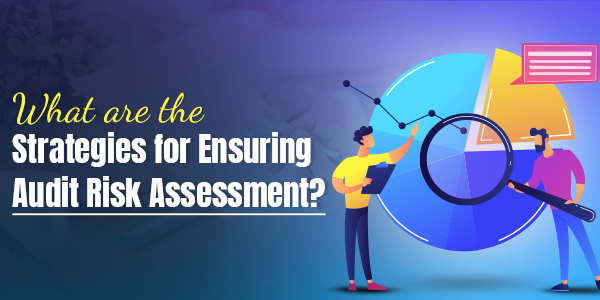
What are the Strategies for Ensuring Audit Risk Assessment?
Ensuring a thorough and accurate audit risk assessment is crucial for any organization, including Audit Firms in Kochi that wants to mitigate financial risks and maintain strong internal controls. But with complex financial landscapes and ever-evolving business environments, effectively assessing audit risk can be a challenging task. In this blog post, we’ll delve into the key strategies for conducting a robust audit risk assessment, helping you navigate the process and equip yourself with the necessary tools to gain valuable insights into your organization’s financial health.
Defining the Audit Universe
The first step in any risk assessment is establishing the boundaries of your evaluation. This involves identifying all entities, accounts, systems, and processes within your organization that will be subject to audit procedures. Think of it as drawing a map of your financial terrain, ensuring no stone is left unturned during the risk assessment process.
Understanding Inherent Risk
Once you’ve defined your audit universe, it’s time to assess the inherent risk associated with each element. This involves analyzing the susceptibility of each entity, account, or process to errors or misstatements due to factors like:
Complexity: Are there intricate transactions or accounting procedures that increase the risk of errors?
Volume: Do high transaction volumes make it more difficult to maintain accurate records?
Regulation: Are there specific industry regulations or compliance requirements that increase the risk of non-compliance?
By understanding the inherent risk factors, you can prioritize your audit procedures and allocate resources effectively.
Evaluating Control Risk
Control risk refers to the effectiveness of your internal controls in preventing or detecting errors or misstatements. This involves assessing the design, implementation, and effectiveness of controls across your financial systems and processes.
Some key areas to evaluate include:
Segregation of duties: Are tasks like authorization, recording, and custody of assets separated to minimize the risk of fraud?
Recordkeeping: Are accurate and complete records maintained for all financial transactions?
Analytical procedures: Are periodic analyses conducted to identify potential irregularities or inconsistencies?
A thorough evaluation of control risk helps you determine the extent to which internal controls mitigate inherent risks and inform your audit planning decisions.
Performing Risk Assessment Procedures
Risk assessment procedures involve gathering evidence to support your assessment of inherent and control risk. This can involve:
Inquiry: Discussing risk factors and controls with management and key personnel.
Observation: Watching employees perform key tasks to assess control effectiveness.
Analytical procedures: Performing data analysis to identify trends or anomalies that may indicate potential risks.
By actively gathering evidence, you can gain a deeper understanding of the risks present in your organization and refine your audit plan accordingly.
Documenting and Communicating Findings
The final step in ensuring a successful audit risk assessment is documenting your findings and communicating them to relevant stakeholders. This includes:
Preparing a risk assessment report: This report should summarize the identified risks, their inherent and control risk assessments, and the planned audit procedures to address them.
Communicating with management: Discuss the key findings of your risk assessment with management and obtain their buy-in for the planned audit approach.
Involving the audit team: Share the risk assessment findings with the audit team to ensure everyone is on the same page and equipped to address the identified risks during the audit.
By effectively documenting and communicating your findings, you can ensure that the audit risk assessment serves as a valuable roadmap for conducting a successful and impactful audit. Remember, a robust audit risk assessment is an iterative process. As your organization evolves and the external environment changes, it’s crucial to regularly review and update your risk assessment, including Chartered Accountant Services in Kochi, to maintain a strong line of defense against financial risks.
 English
English






